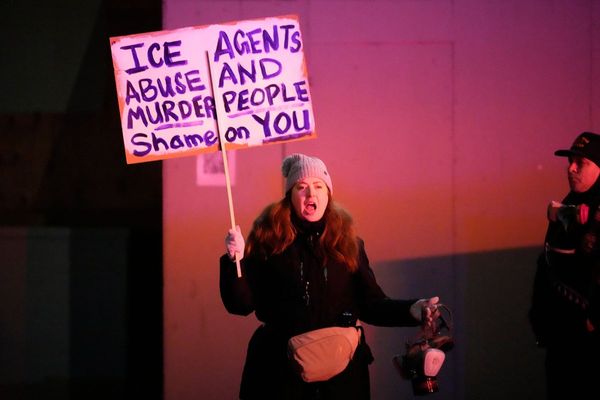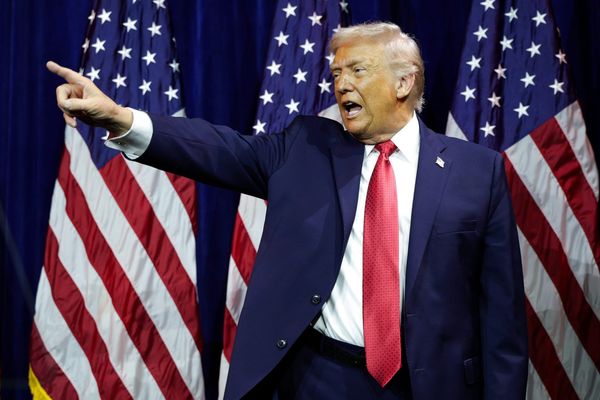
A radical right conference that was addressed by Nigel Farage and Suella Braverman as police arrived to close it down has resumed after a Brussels court overturned a local mayor’s attempt to stop it.
Following moves condemned as “unacceptable” and “unconstitutional” by the Belgian prime minister, Alexander De Croo, organisers of the National Conservatism conference went to the conseil d’état, Belgium’s supreme administrative court.
It ruled there was no evidence of a threat to public order from the event itself and that this claim seemed to be “derived purely from the reactions that its organisation might provoke among opponents”.
It confirmed the mayor had the authority to seek police orders to close events if there were “serious disturbances of the public peace”.
On Tuesday there were farcical scenes at the Claridge venue after police entered the building to serve an order just as the former Brexit party leader Farage was finishing his speech.
Braverman, a former UK home secretary who followed Farage on the schedule, was allowed to continue with a speech railing against the European convention on human rights but by then the conference had been shuttered.
Emir Kir, the local mayor who had issued the order to break up the conference, was defiant on Wednesday, saying the move was based on analysis by the Belgian state agency that monitors extremist threats.
The court’s ruling, which was published by the Belgian prime minister on his X account, included details of Kir’s original claims about the conference. These included allegations that it had the potential to cause serious disturbances and that speakers included provocateurs, homophobes, others who had been under police protection in their own country and at least one author of a controversial work about “political Islam”.
There was said to be a “medium” level of threat to participants, in the view of Belgian counter-terrorism officials.
Kir’s claims that counter-terrorism officials had made the assessment were rejected as “bullshit” by Frank Furedi, a professor at the University of Kent and executive director of MCC Brussels, a thinktank that has received state funding from the government of Hungary’s Viktor Orbán, one of the speakers.
Paul Coleman, the executive director of ADF International, a legal advocacy organisation that champions rightwing causes and backed the court case on Tuesday night, accused the local mayor of “authoritarian censorship”. The conference was staged after two other venues pulled the plug under pressure from local mayors.
“While common sense and justice have prevailed, what happened yesterday is a dark mark on European democracy,” Coleman said.
The decision by the mayor attracted widespread condemnation from the left and right, as the organisers claimed to be victims of “cancel culture”.
Wednesday’s speakers included Orbán, who used the platform to call for a change of leadership in Brussels. “I think freedom in Europe, and especially in Brussels, is in danger, as yesterday it was shown,” said the Hungarian leader, who has used the term “illiberal democracy” to describe the state he has been building in Hungary.
France’s firebrand former presidential candidate Éric Zemmour – among those who was barred from entering on Tuesday – also addressed the gathering on Wednesday. “Thanks to God, thanks to the pressure we exerted, thanks to the scandal in all of Europe, Europe has shown that it was still the continent of liberal democracy, and of the rule of law,” Zemmour told reporters inside the conference.
The attempt to shut down the event was also criticised on the left, including by Keir Starmer, the leader of the UK’s Labour party. Starmer’s spokesperson said: “There were potentially operational decisions that we don’t know about but in principle, he believes in the principle of free speech.”







